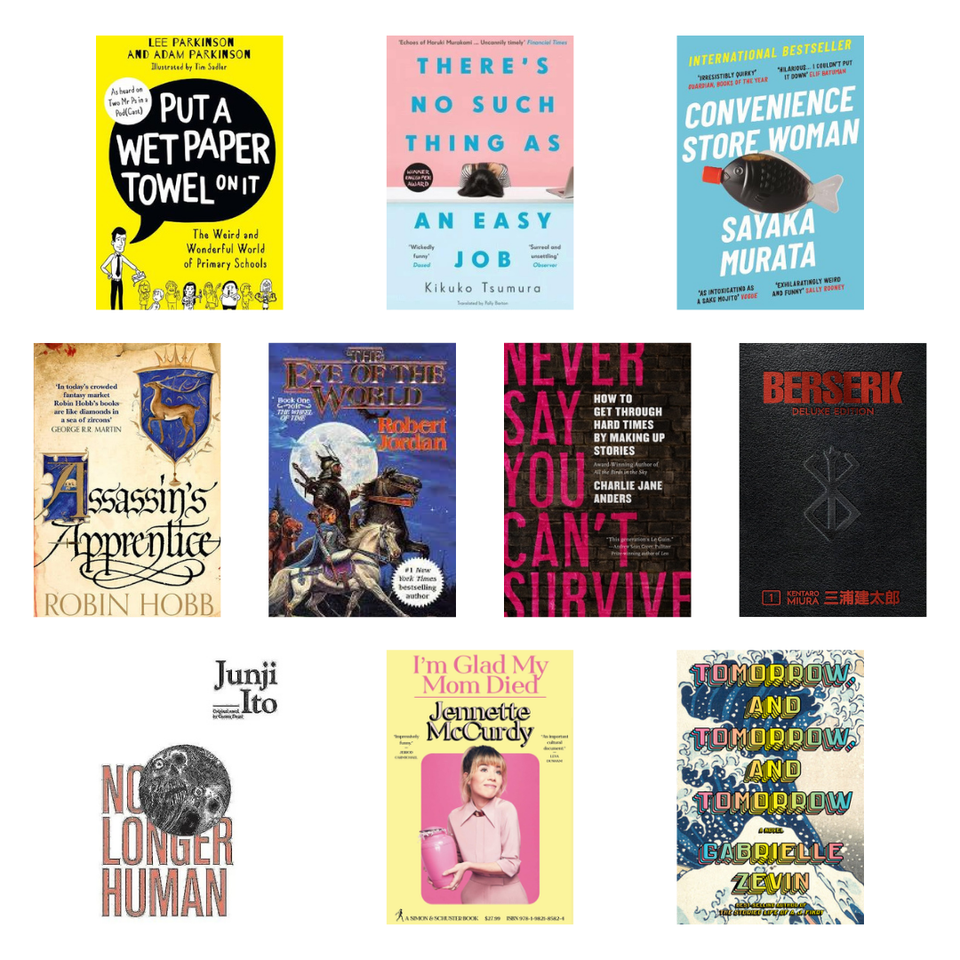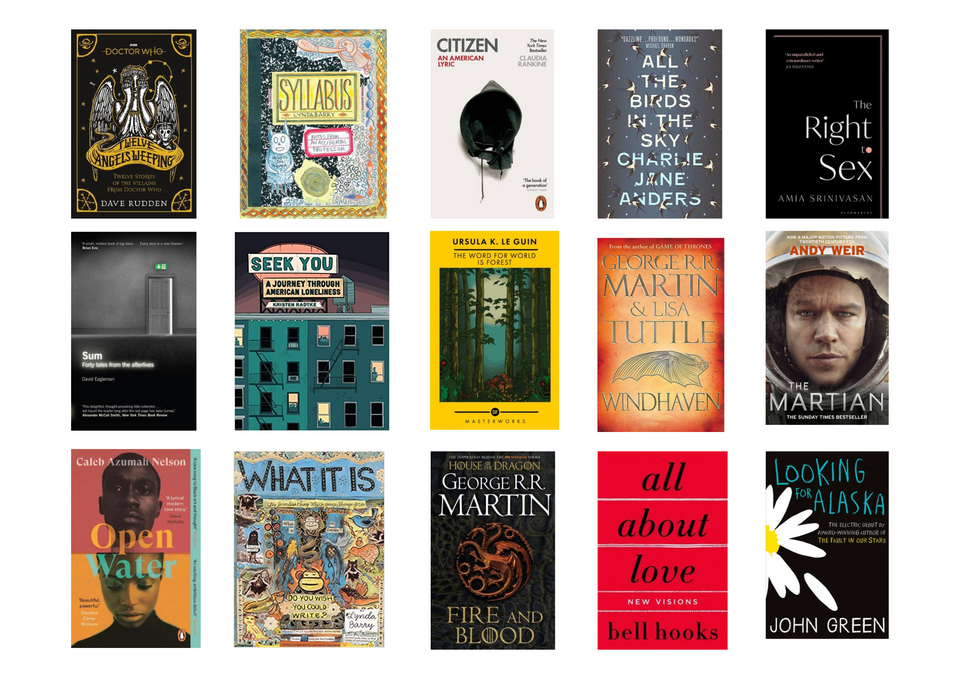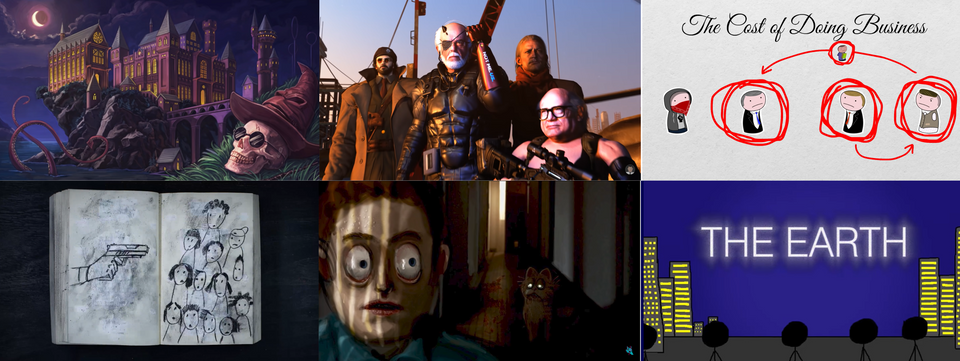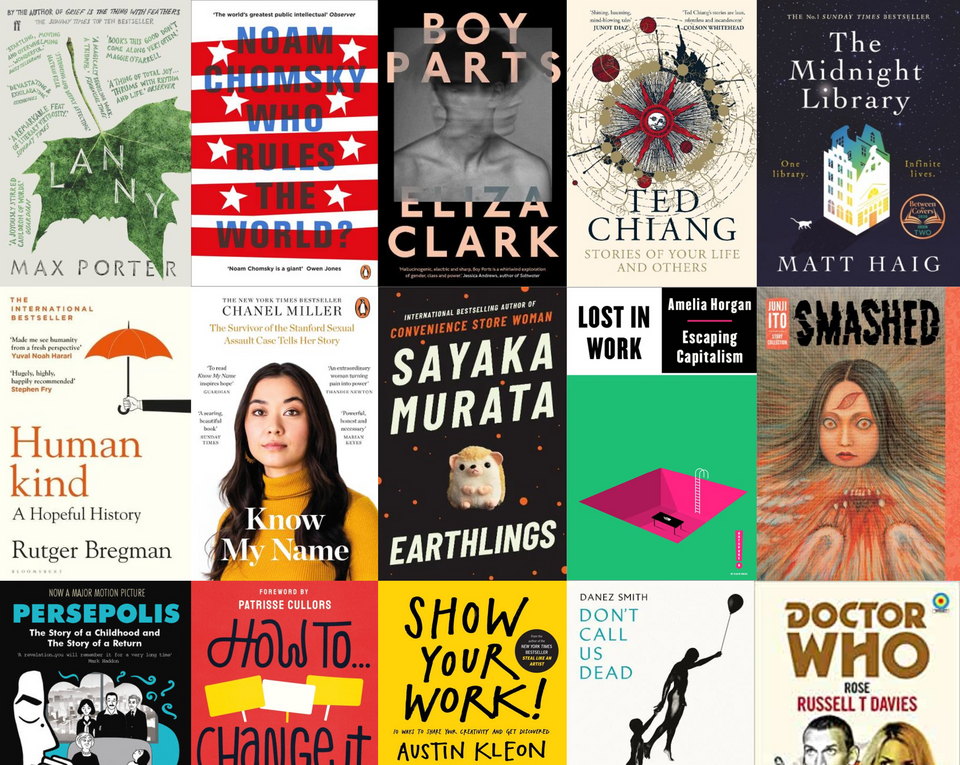My Favourite Books of 2020
The top 15 books I most enjoyed reading this year.
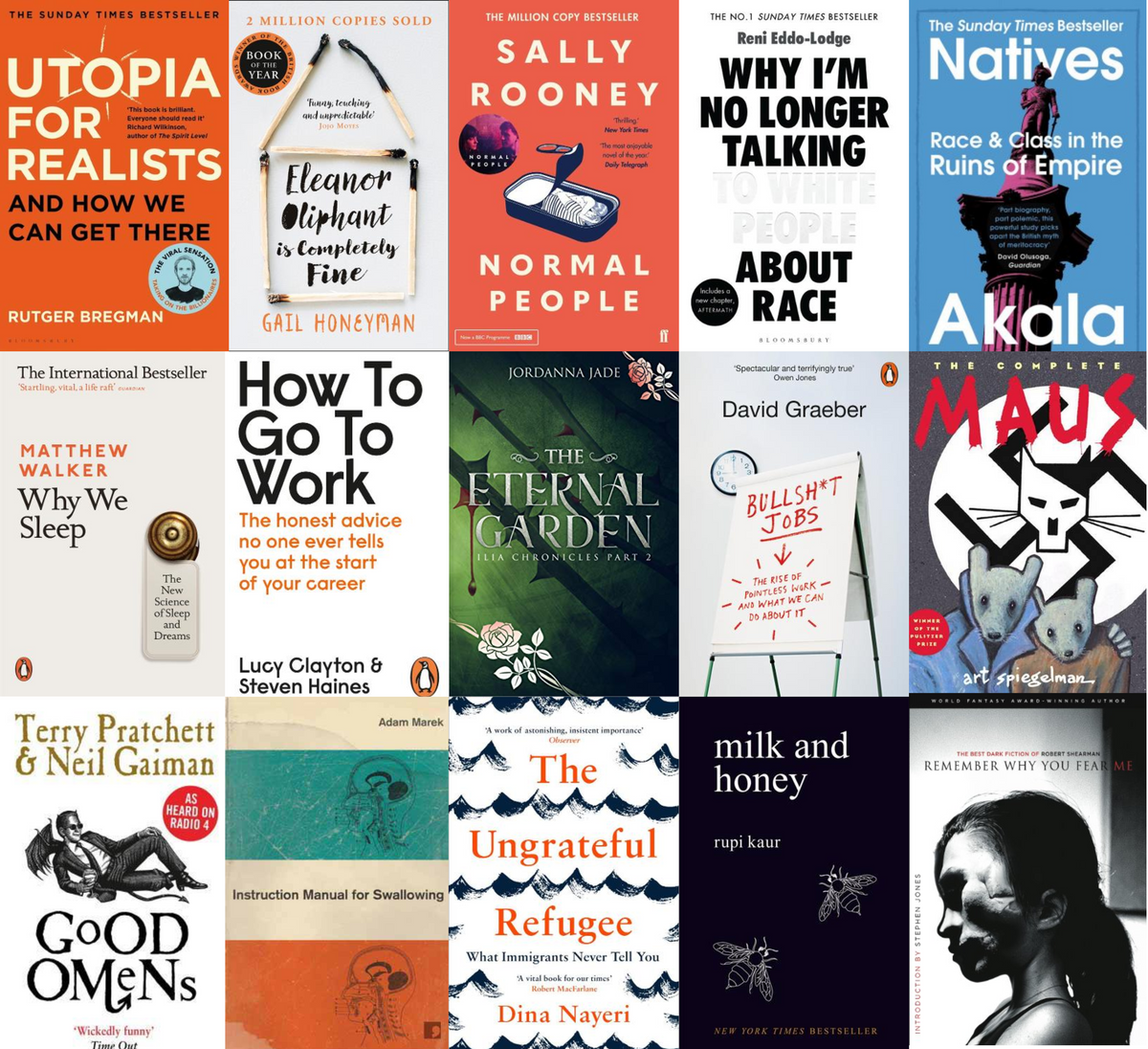
Every year I set myself a reading goal. I set it high enough to be a consistent nudge to read often but never too high that reading becomes stressful.
My goal was to read 35 books in 2020, and I read a total of 45.
It was the first year that theatre plays didn’t contribute to that final number, which made reading in 2020 a completely different experience compared to the previous couple of years. Instead, I read a great deal more non-fiction than I normally would, which I found to be equally as pleasurable as reading fiction. I also learnt a lot, too.
I enjoyed most books I read last year, but I’ve decided to list 15 I felt were worth highlighting. I’ve listed them in the order I read them. I considered ranking them but that led to overthinking, and I already have enough of that in my life.

How To Go To Work by Lucy Clayton & Steven Haines
Education does a poor job of preparing us to enter the workforce. It’s not that education fails to teach us useful skills, but how to correctly apply them to finding work is something we’re left to work out for ourselves. Well Lucy Clayton and Steven Haines have written a guide to help bridge that gap between education and employment. Although it is probably in need of a more up-to-date edition to include remote working, it’s still a book I’ll be keeping close to hand in my next job.

Good Omens by Terry Pratchett & Neil Gaiman
After being gifted this for Christmas by a friend, it sat on my bookshelf for four years waiting to be read. It’s not that I didn’t want to read it, I just couldn’t decide when I wanted to see if the book met the hype. But after committing the sin of watching the TV show before reading the book, I had to see how the text compared. Safe to say, this novel is as funny as promised and is well-deserving of its glowing reputation.

Why We Sleep by Matthew Walker
If the subject of sleep causes you distress, maybe don't read this. Otherwise, this book is an enlightening read on the importance of sleep. Why we need it, what sleep does for us and how society should change so we all get sufficient rest. You won’t catch me willingly pull an all-nighter ever again.

Eleanor Oliphant is Completely Fine by Gail Honeyman
Winner of the Costa Book Award 2017, I quickly fell in love with Honeyman’s prose. This is a unique exploration of loneliness, which kept me hooked with surprises. Seeing the world through Oliphant’s eyes leads to funny observations of what we take for granted as normal human behaviour. But with it comes a great deal of pain, too.

Utopia for Realists: And How We Can Get There by Rutger Bregman
My pick of the year. If there’s one book on this list I’d insist you read then it’s this one. I’ve been guilty in the past of buying into the narrative that certain progressive ideas are too unrealistic. But Bregman, a Dutch historian, demonstrates that a better future doesn’t have to be a dream. The end of poverty, UBI, a 15-hour workweek, and more are all possible. How? It’s all detailed in Bregman’s inspiring prose.

Instruction Manual for Swallowing by Adam Marek
Marek’s collection of short stories is certainly not to everyone’s tastes, but I took great delight in the discomfort I felt. My favourite was “Belly Full of Rain” where one woman finds herself pregnant with 37 foetuses and insists on giving birth to them all. I also laughed and squirmed whilst reading “Testicular Cancer vs. the Behemoth”, whereby one man is oblivious to a gigantic monster terrorising the city as he is consumed by the fear and pain of his terminal diagnosis.

Normal People by Sally Rooney
A modern love story that had me compulsively turning the pages. I found myself delightfully frustrated the whole time as I screamed at the characters to just communicate, and it dawned on me just how personal the feelings it coaxed out of me were. It just goes to show that miscommunication and fears of vulnerability can lead to gripping conflict. I quite liked the TV show, too, which I found to be a very faithful adaptation.

The Eternal Garden by Jordanna Jade
This character-driven fantasy has a great take on the use of magic. Rather than an enviable power, it’s an addictive but destructive force that takes years off your life. The relationship between protagonists Rian and Wren is beautifully crafted, too. The secrets these characters keep also make for compelling stakes.

The Ungrateful Refugee by Dina Nayeri
In 2019, I had the pleasure of meeting Dina Nayeri when I organised a live event with her in collaboration with the University of Essex Library and Lakeside Theatre. Nayeri fled Iran at the age of eight, and this is her story interwoven with the narratives of other refugees. Considering how much disinformation is out there on the realities of refugee life, this is an important read. Whilst there are certainly some inspiring stories here, others had me enraged by the injustice of it all.
I’d also recommend her Guardian longread that shares a title with this book.

Why I’m No Longer Talking to White People About Race by Reni Eddo-Lodge
I don’t know what I could say about this book that hasn’t been said better by many others. If you haven’t heard about it, where the heck have you been? And if you haven’t read it yet, I’d advise you change that ASAP. It’s the perfect introduction to anti-racism. Despite being a relatively short book, it’s packed with information expertly told with powerful prose. I only wish I had taken notes, which just means I’ll have to read it again.

Bullshit Jobs by David Graeber
If you feel like your 9-5 serves no purpose, you might have a BS job. Graeber’s original article “On the Phenomenon of Bullshit Jobs” published in Strike! inspired hundreds to email him with tales of their bullshit work. This is the book that followed, which incorporates these stories in Graeber’s analysis of exactly what makes a bullshit job and why it’s a major problem. This is an important read, even more so since the pandemic has brought our relationship with work to the forefront of public discourse.

Milk and Honey by Rupi Kaur
I used to be one of those people who joined the Twitter critics who scoffed at poets who “just wrote sentences and hit enter a few times.” In my ignorance, I didn’t think to sit down and give Kaur a chance. Little did I realise that reading one of her books from cover to cover is a completely different experience to reading a single poem out of context. The emotional narrative Kaur weaves had me entranced, forcing me to completely rethink any prescriptivist ideas I previously held about poetry. If you’ve never read one of her books in a single sitting, I’d strongly suggest you try it.

The Complete MAUS by Art Spiegelman
A strong contender for the best graphic novel I’ve ever read. Nazis are drawn as cats, Jews as mice. The terror of Nazi-occupied Poland is realised through Spiegelman’s illustrated biographical account told by his father, Vladek: a survivor of Auschwitz. Words are inadequate to express how much I loved this book. It’s a heart-wrenching read, but I cannot recommend it to people enough.
I also loved—and was utterly destroyed by—the inclusion of an earlier work Spiegelman produced about his mother’s suicide, titled "Prisoner on the Hell Planet."

Natives: Race and Class in the Ruins of Empire by Akala
Weaving personal stories with history, Akala paints a picture of Britain very different to the one we were taught whilst growing up. It’s essential we get comfortable with being uncomfortable because it’s never been more important that we unlearn the myths surrounding the British Empire. After reading Eddo-Lodge’s Why I’m No Longer Talking to White People About Race, Akala is a great next step. The book even comes with a handy guide to denial.
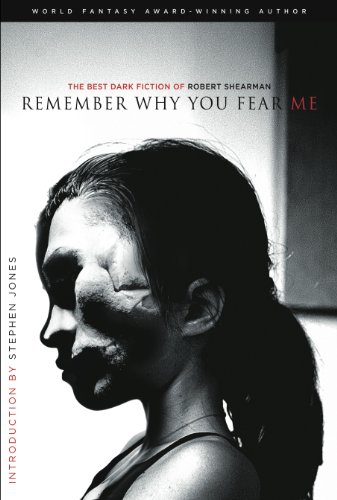
Remember Why You Fear Me by Robert Shearman
Shearman has become one of my favourite authors over these past couple of years. I’ve been completely obsessed with his absurd short fiction and they’ve been inspiring a lot of my own work since 2018. This book collects some of his best horror stories from his first three anthologies, including my favourites “Pang” and “Damned If You Don’t”, the latter of which is centred on a man sharing his bunkbed in Hell with Hitler’s dog. There are also several unsettling new tales in this collection, such as one where a man is trapped in a hotel room with every arachnophobe’s worst nightmare.
In 2021, I plan to keep reading more non-fiction and try to fit one or two other new genres in, too. I also aim for much more diversity. This year was the first time I’d made any real conscious effort to do so, and I very much want that attitude to be consistent forevermore.
